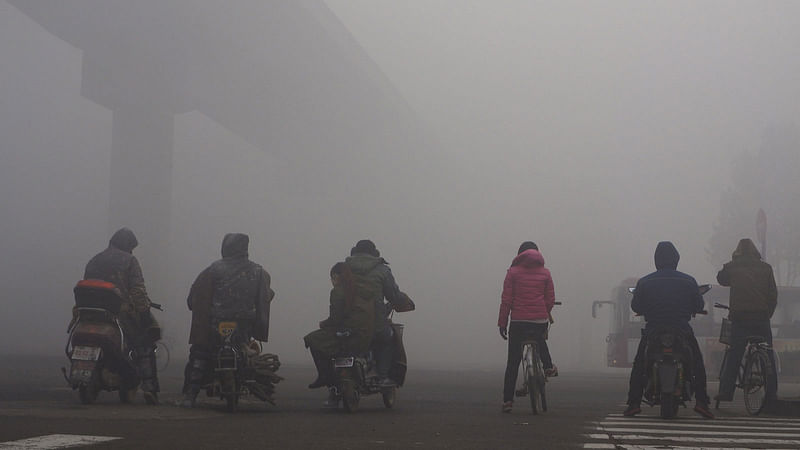China regions vow to step up pollution crackdown

Eight Chinese regions have promised to beef up anti-pollution curbs, vowing fresh cuts in smog, cleaner water and soil and tighter scrutiny over government officials after Beijing-led probes uncovered thousands of violations.
China's Ministry of Ecology and Environment (MEE) said on Tuesday that the heavily populated industrial provinces of Shandong, Zhejiang and Sichuan were among the regions committing themselves to new measures, as well as Xinjiang and Tibet in the remote northwest.
As part of efforts to crack down on persistent polluters and negligent local administrations, Beijing launched a nationwide audit at the end of 2015 into the environmental records of 31 provinces and regions.
Teams led by retired ministers were granted powers to make unannounced spot checks at factories and summon local bureaucrats to explain their actions. The inspections, completed last year, have already had a big impact.
"There are definitely a lot of issues that might not have come to light without central government inspections, such as steel plants failing to retire capacity as ordered or building new capacity without a permit," said Lauri Myllyvirta, clean air campaigner with environment group Greenpeace.
In a statement published by the MEE, Shandong on China's eastern coast vowed to "unswervingly" implement government policies and restructure its heavy industrial economy.
It pledged to cut concentrations of hazardous airborne particles known as PM2.5 by half compared to 2013, though Myllyvirta said the target of 49 micrograms per cubic metre was not especially ambitious.
"Local officials are being incentivised very strongly to meet air quality targets so they shouldn't be the ones setting them," he said.
In its commitments, Xinjiang, a major oil and gas producing region, promised to set winter production caps on industries like thermal power, steel and chemicals in a bid to cut 2017 levels of PM2.5 by a quarter by 2020.
The manufacturing hub of Zhejiang, near Shanghai, promised to cut PM2.5 to the national standard of 35 micrograms, and make 91 percent of polluted arable land fit for human use by 2020.
By end-March, more than 2,000 government and state enterprise officials in 15 regions had been held to account as a result of the inspections, according to Reuters calculations based on MEE data. Most received an official reprimand and 22 face criminal charges.
State-owned China Minmetals Group was also accused by inspectors of being a "big corporate bully" after failing to rectify violations.
China's president Xi Jinping vowed this month to use the full might of the Communist Party to redress the damage done to the country's skies, soil and water since its economy was first opened up in 1978.
Meanwhile the government is planning to launch a second round of regional inspections early next year, the Communist Party newspaper People's Daily reported last week.
"It shows how resolute the Centre is on this issue and how it is determined to keep up the pressure on the provinces," said Peter Corne, managing partner at legal firm Dorsey & Whitney in Shanghai, who follows China's environmental policies.
"They have nowhere to hide," he added.